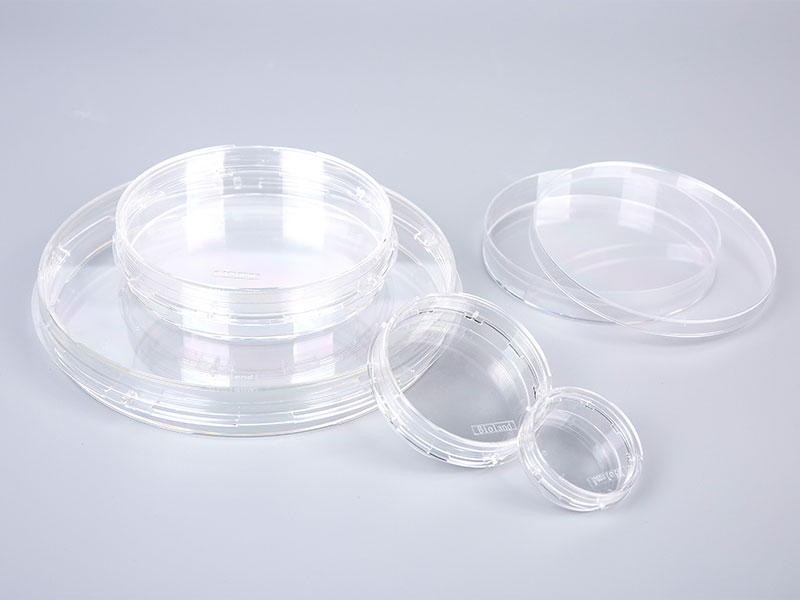Sterility, Safety, and Compliance: A Deep Dive into USP Class VI Materials for Lab Consumables
At the heart of cell culture technology are cell culture consumables—essential tools such as culture flasks, dishes, plates, cryotubes, pipettes, and sterile shaker flasks, all of which allow scientists to cultivate cells, tissues, and microorganisms in highly controlled environments. However, in such high-stakes fields, the consumables used in research must meet stringent standards to ensure safety, sterility, and compliance with regulatory requirements. One of the key material standards that govern the production of lab consumables is USP (United States Pharmacopeia) Class VI certification. This certification is a critical benchmark that ensures that the materials used in lab consumables are safe, non-toxic, and compatible with sensitive biological applications.
USP Class VI certification is not just about the material itself but also how the material behaves under specific conditions. To qualify, materials must pass rigorous tests, including evaluations for systemic toxicity, intracutaneous reactivity, and implantation effects, ensuring that no harmful substances leach out when exposed to biological systems. This high level of testing is crucial for consumables used in cell culture, where contamination or toxicity can compromise entire experiments, leading to inaccurate results or failed research efforts. For instance, any trace of RNase, DNase, pyrogens, or cytotoxins could interfere with the growth or behavior of cells, which is why most high-quality consumables, including those produced by companies like Bioland, are guaranteed to be free from these contaminants. The sterility of these products is ensured by manufacturing them in cleanroom environments, such as 100,000-class and 10,000-class clean workshops, where automated systems minimize human interference and potential contamination.

The use of USP Class VI materials in lab consumables ensures not only biological safety but also compliance with global regulatory standards, particularly in pharmaceutical and biotechnological industries. The assurance that these materials have passed stringent testing provides peace of mind for researchers and institutions concerned about product quality, reproducibility, and adherence to legal standards. For manufacturers, compliance with USP Class VI requirements is an integral part of the production process, as it allows their products to be used in sensitive applications, including drug discovery, vaccine production, and cellular therapy. This level of trust and reliability is a key selling point for companies supplying cell culture consumables, as clients often prioritize sterility and compliance when selecting their laboratory tools.
However, safety and compliance extend beyond material testing. Innovative designs in consumables also contribute to enhanced sterility and usability in labs. For example, patented features such as Bioland’s easy-to-grab ring design in culture dishes and the trapezoidal, quarter-turn opening mechanism for culture bottles ensure that lab technicians can handle consumables with minimal risk of contamination. These seemingly small design improvements make a significant difference in environments where sterility is critical. In the fast-paced setting of research labs, these innovations not only ensure better user experience but also enhance the overall integrity of experiments by reducing the risk of accidental contamination through improper handling.
Beyond technical considerations, the use of compliant materials like those certified under USP Class VI reflects a deeper ethical responsibility in biotechnology. The demand for sterility and safety in cell culture consumables stems from the understanding that these tools contribute to life-saving research, including drug development, vaccine innovation, and regenerative medicine. The products must be meticulously designed and manufactured to protect the integrity of the research and ultimately, the safety of human patients who will benefit from these scientific advancements. In this sense, compliance with safety standards is not just a regulatory checkbox but a moral obligation that safeguards public health and supports the continued progress of science.
For more information, please call us at +86-0571-87993109 or email us at hzbioland@126.com.
Aseptic vacuum filters, like Bioland™ disposable vacuum filtration units, are designed for high-effi...
Whether used in the food hygiene industry, water monitoring, or research labs, selecting the right m...
Narrow-mouth reagent bottles are essential tools in laboratories, offering precise storage solutions...
In laboratory diagnostics, particularly in PCR (Polymerase Chain Reaction) testing, efficiency is pa...
When working with the Bioland™ Cell Shaker, one of the most crucial factors in ensuring successful c...
Polymerase chain reaction (PCR) is one of the most vital techniques in molecular biology, allowing s...

 中文简体
中文简体 English
English Español
Español русский
русский











